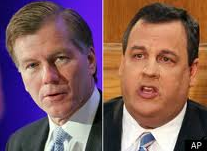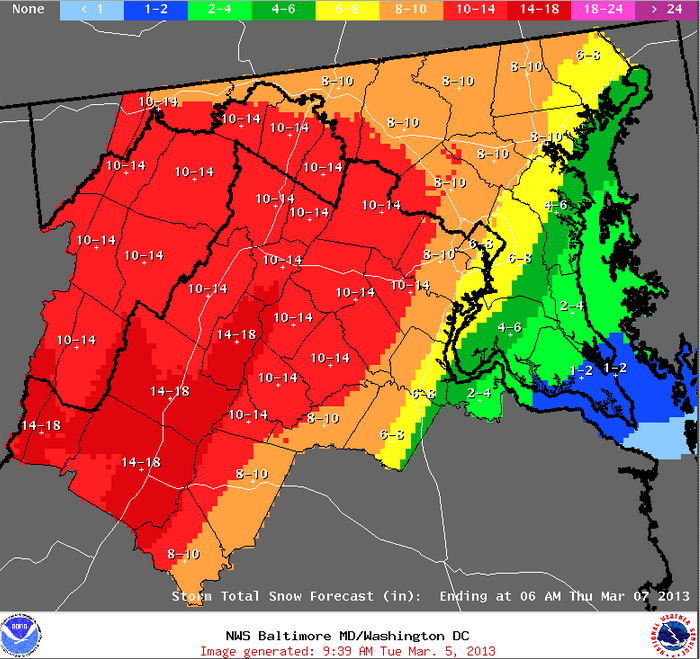( – promoted by lowkell)
 by Paul Goldman
by Paul Goldman
I take Attorney General Ken Cuccinelli at his word: the AG will not resign to run for governor. He correctly reports that Virginia is the only state where the political elites expect a sitting Attorney General to resign either during the nomination process or shortly after winning the party’s gubernatorial nod. Self-evidentially, he isn’t a big fan of this unique tradition, begun about the time a few young Liverpool, England teenagers named John, Paul, George and Ringo first began tinkering with guitars and drums, listening late at night to a new music genre, American rock and roll.
Before the passage of the transportation tax package, it seemed to me Cuccinelli’s stance amounted to a scaled-down version of the old adage “I would rather be right than President.” Yes, it might be a silly tradition, started for an even sillier reason: that the AG’s job took too much time to be done successfully while running for governor. This is amusing, since when the tradition began, the AG’s position was essentially part-time, the office far smaller. Besides, Senator Harry Byrd still ran the state, telling the AG what to do as regards to any significant matter. More to the point, Byrd’s Machine decided who got to be governor: there was no competitive campaign for the job. It was what legendary Virginia Democrat Henry Howell called “appointment by anointment.”
So Cuccinelli has a valid point, indeed one Democrats might normally be expected to support: namely, ending something created by the segregationists, in part perhaps to protect their sitting AG from having to run for governor while defending the legality of their defiance of the Supreme Court’s order to dismantle the state’s “separate but equal” school system.
Historically speaking therefore, Cuccinelli has a legitimate claim to be ending a political tradition likely stemming from an educational, indeed social policy, that did so much to hurt the Commonwealth as a whole and millions of citizens individually. Why not get rid of it?
Yet Democratic leaders, indeed enlightened leaders around the state, have been attacking Cuccinelli for breaking with this tradition. They claim it sullies our legal system, since he is now a partisan political candidate in charge of being the state’s top legal officer.
As a matter of 200-proof politics, I too have questioned the wisdom of his decision to defy this tradition. But the analysis had nothing to do with the issue of whether a person could run for governor and also administer the office of Attorney General at the same time. In that regard, Cuccinelli has always been right: he can do both, as could all the other AG’s before him.
However, perceptions matter in politics. To the extent voters believe he should resign, then as they say, the customer is always right. Democrats have a perfect right to appeal to this belief. We call it politics.
Thus in politics, being right is not usually enough: because the bottom line is whether you are wrong electorally when running for office. The voters aren’t going to give you “points” for being able to multi-task. Since the idea, presumably, is to win, not merely to run, the operative question has nothing to do with the job per se.
Whether unique or not, whether silly or not, whether rooted somehow in the doomed policy of “massive resistance to Brown v. Board of Education” or not, the bottom line is only this: does resigning help you win, or not? It might take some guess work. But this part of politics too.
200-proof politics cares not about principled challenges to pointless tradition, or the foolish consistencies demanded by the hobgoblins of small minds. The 200-proof brain can not compute the “I would rather be right than President” political strategy, the circuits overheat, the CPU freezes, the program out of code. Instead, it judges the Cuccinelli defiance of tradition by the basic Coach Lombardi standard: does it get the ball closer to the goal line? If it does, then you run the play. If it doesn’t, you don’t run the play.
So yes, the Attorney General is right to say the tradition of resigning, uniquely Virginian, is not rooted in the practical realities of doing the basic job of Attorney General. As shown above, it didn’t start from that position, it doesn’t rest in that position three generations later. It is, on that parameter, a silly tradition made more silly when used by otherwise intelligent people to attack an incumbent Attorney General for not resigning.
But again, the only equation that matters to a candidate for office is this one: Do I cost myself net-votes by not resigning?
Before the passage of the transportation package, my view had been: Cuccinelli might be right about the tradition, but he made a political mistake by refusing to resign. Governor McDonnell had followed the tradition, resigning early in 2009, claiming he couldn’t do justice to the AG’s job while seeking the GOP gubernatorial nod. At the time, McD was unopposed for the gubernatorial nomination!
Given his strong words – all on the record – it seemed to me to be a net/loser for Cuccinelli to stay as AG. His opponents would rightly seize on McD’s remarks, and use them against the AG. In that regard, I viewed the situation like a title fight.
In my day, I could out box guys bigger than me for one reason; namely, I had a good jab. True, it was just for fun. In a street fight, I would be dead meat. But in a gym, with protective gear, you didn’t want to mess with the kid’s jab. It is an often overlooked weapon. If you know how to jab, it can keep a guy off balance, even make him frustrated. The punch also has its uses in politics.
A guy gets frustrated, he makes a mistake, opens himself up to a harder shot. As I saw it, Cuccinelli had given the Democrats a good jab, one used very effectively to befuddle Attorney General Marshall Coleman in 1981. Mr. Coleman refused to resign, the only AG to break with the tradition, and he eventually went to “part time” status in hopes of removing the political liability of not resigning. This only compounded the campaign problem. Coleman spent the whole campaign being jabbed to death.
Since then, avoiding the “Coleman problem” has been paramount for all sitting AG’s hoping to move up. Until now. But like I say, this was my pre-Transportation Tax Deal position. Now, I am re-thinking my analysis in the Post-Transportation Deal world of 2013 Virginia politics.
Political logic suggests that Mr. Cuccinelli will eventually make a clean break with those who want their tombstone to read “I backed the Historic Transportation Deal.” Now, I like historic; there are any number of books written describing my role in what Virginians told pollsters was their view of the most historic event in state history in 20th century, at least in terms of politics. It is true that Senator Warner and others claim the books are wrong in giving me credit for this and that. My son is doing a class paper on the matter in some respects right now. We shall see what he concludes.
Personally, I don’t much give a damn at this point. The criticism once bothered me, but now that I realize the reasons for it, I find it amusing, even pathetic to be truthful. Let people say whatever helps them make it through the day is my view. Life is hard enough.
Still, historic is good, it is fun, it is necessary at times: but unless it helps you win, what is the 200-proof point? I will take mundane over historic if that is the price of victory.
So I ask myself: Since Cuccinelli is going to be defying the governor on transportation, what does it matter if he does the same on not resigning? Since Democrats are totally committed to running a ticket a full support of the Transportation Deal, what does it matter if they hit Cuccinelli on not resigning?
In the Coleman v Robb election, there was no huge election-year tax increase, no huge deal on a major policy issue. There were issues for sure, but they were rooted more in the politics of the 1960s than anything else. Both men represented two sides of an emerging post-segregation generation, neither connected to the politics of the past.
Robb, as I wrote at the time, would eventually be remembered as an important bridge to a new Virginia. He and I were like oil and water to be sure. But at the same time, we did have similar understandings of the new politics, only we looked at how to harness these changes differently. I never gave Robb his due, but in fairness, he never gave me mine either, I believe he would admit that all these years later. Still, he was the governor and deserved more respect than I was able to give him. That was wrong, even though it turned out to be good politics in terms of making history.
In terms of Cuccinelli, the equation is flipped. He deserves respect for calling a silly tradition a silly tradition, for challenging it and those who criticize him for not following it per se. To the extent I fall into that group, I accept the criticism: the AG is right. But to the extent my criticism has been 200-proof politics – and I believe it has – then my criticism of him for not resigning is legitimately made.
Yet it begs the question: Did the Transportation Tax package change the equation, making what I thought was the wrong political decision now the right one? There is at least reason for me to rethink what seemed beyond such a requirement.
By pure luck, Cuccinelli has been handed a non-social issue which, if used correctly, can define a far different campaign strategy than the AG seemed determined to use when the year started. I have no way of knowing whether he intends to follow Robert Frost’s advice and take the road less traveled, at least by him.
Candidates for Governor of Virginia win on non-social issues. This isn’t a silly tradition dating back hundreds of years: it is solid, stone-cold fact. Cuccinelli now has 24/7 to talk the issues that matter historically. He is still the underdog. But at least he isn’t a dead dog.
The point being: Given the new dynamics, what power is the “He didn’t resign, yada, yada, yada” going to have in the final analysis on election day? Before the Transportation Tax package, Cuccinelli seemed to be running a static, defensive, French-style military campaign. It didn’t win WW1, it allowed Hitler to capture Paris with hardly a fight, it was a campaign made to be frustrated by a Democratic jab on his not resigning. It was a loser.
But now, Cuccinelli has a way to get on the offensive in terms of the chess board strategy. This doesn’t mean he wins, only that he can take the fight to McAuliffe and Bolling. In that kind of campaign, the jab loses its strategic punch.
So the Governor resigned as AG: Cuccinelli is in McD’s face on transportation, on taxes, on other things. The AG resignation thing is now a bullet point somewhere on a long list of bigger bullet points. There are so many bigger substantive issues on the front burner. Now, resignation issue figures to be defined not by the fact of not resigning, but rather by evidence the AG is not doing his job.This will be a tougher marker for Democrats to prove unless Cuccinelli screws up on the job.
In 2013, both sides are going to be throwing some major left and right hand punches: this is not going to be the case where the jab is setting up the big punch. By staying in office, Cuccinelli retains a platform unavailable to McAuliffe and Bolling to command attention on the big stuff should he so choose. On a net-net basis, this might actually be a winner for Cuccinelli, all other things being equal.
Right now, I am still in the recalibrating phase, trying to adjust the “Should he or shouldn’t he” resign equation to the new post-Transportation Deal politics. What seemed clear to me is no longer so certain. My gut says not resigning is still more risk than reward after everything is netted out. But my head isn’t so sure anymore.
 You and I know him as Pat Robertson’s good friend, a guy who’s so conservative that he was once nicknamed “Taliban Bob,” etc. But to the ideological purist, burn-the-heretics-at-the-stake crowd over at the Conservative Political Action Conference, Bob McDonnell might as well be Che Guevara.
You and I know him as Pat Robertson’s good friend, a guy who’s so conservative that he was once nicknamed “Taliban Bob,” etc. But to the ideological purist, burn-the-heretics-at-the-stake crowd over at the Conservative Political Action Conference, Bob McDonnell might as well be Che Guevara.


 Cross posted from
Cross posted from 





